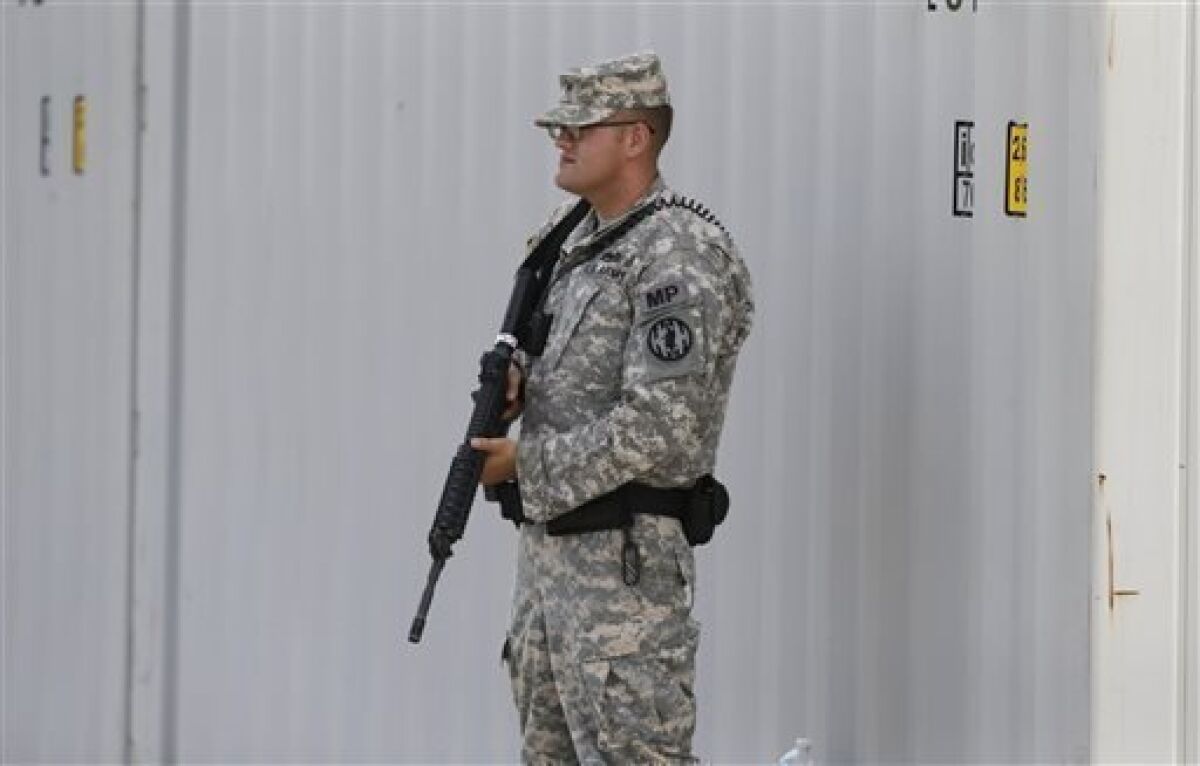Military Psychiatrist - Psychiatrists might ask, "Why should I care?" It's a fair question and a place to start. Each of you is a scarce resource for our wider community. If your bandwidth is anything like mine, it fills up quickly and has limits to what it can digest and act on. Let me suggest a few reasons—by no means an exhaustive list—why what's happening in the world of military and veteran mental health is of great interest to you.
1. The local impact of the past 13 years of armed conflict is greater than many realize and much greater than just the number of veterans in your practice or community.
Military Psychiatrist

When I speak to groups, I often start with the question, "How many Americans do you think have been deployed to Iraq and Afghanistan since September 11, 2001?" I tend to make a few timid guesses. Rarely does more than one person give an estimate much higher than 500,000.
Can You Join The Military With Adhd?
Sometimes there is a gasp when this audience hears that more than 2.5 million Americans have been engaged about 3.5 million times. This number, large as it is, suggests another challenging fact: Only about two-thirds of one percent of all Americans are engaged in these conflicts. For most American families, their only direct exposure to the US military is at the airport.
A closer look shows that the number of deployments is high, but the effects of these wars are even greater. Consider this: In 2008, Nobel Prize-winning economist Joseph Stiglitz1 and colleague Linda Bilmes estimated the cost of the Iraq War alone at between $2 trillion and $5 trillion (a wide potential based on how the economic impact of some factors is assessed, but impressive even by use the most conservative estimate). Can these numbers be credible? When the United States entered the Vietnam War in the early 1960s, there were still Americans receiving Civil War health benefits. It is this long economic tail—some the result of direct benefits and offsets, but perhaps most due to more insidious long-term health effects on individual productivity—that is the main driver of the costs of war.
2. The contrast between military and civilian culture can challenge our notions of where societal values end and hard evidence begins.
Anyone who grew up in America is likely to find certain ways of thinking, even if the global majority sometimes thinks about the same issues in completely different terms. The most poignant example that comes to mind is the tension between personal autonomy and collective responsibility. For millennia, almost all humans sought survival in small groups, and a large (but declining) portion of the world still does. This lifestyle leaves little room for autonomy; everyone's role is crucial and only a collective effort can sustain the group. In this context, the boundaries of individuality are narrow, and violation of accepted roles can result in severe punishment.
Jury Mulling Fate Of Admitted Fort Hood Shooter
In contrast, people in Western civil societies are mobile, adults live independently of neighbors and extended family, and social institutions are diverse and subspecialized. Autonomy and expression are basic human rights. In contrast, neighborhood and family involvement are seen as benevolent but discretionary. When failure occurs, we first look for institutional failure and tend to see individuals as victims of powerful institutions.
I believe that many (not all) misconceptions about the civil-military divide arise because the military is a return to an ancient way of thinking, a view that arises when survival depends on maintaining the viability of a small group or unit. In this context, each member of the small group lives and dies together on behalf of each other.
Imagine a badly wounded soldier who expresses an intense and seemingly almost delusional desire to return to the fight and to his unit. Commitment is self-sacrifice for the benefit of the unit; personal autonomy is nice, but only a luxury. Conversely, if a soldier "drops out", the group must contain the soldier (consider the phrase "don't leave a soldier behind"). However, there are limitations; if someone repeatedly leaves the group, the group is threatened and the consequences are reprimand or even expulsion. In this reality, when bad things happen, it is the individual's fault so that the group can survive until the next day.
Military veterans are omnipresent in our practice and in our lives, and we are often unaware of this fact. With any luck, this column—like the previous example—will give you a foundation for examining patients' circumstances, dilemmas, and behaviors through the lens of military culture and values. It could increase your "military cultural competence" or provide a lesson for more general clinical use.
Sad Military Man In Wheelchair Visiting Psychiatrist, Closeup Stock Photo
3. Emerging military social trends, military-related health issues, and changes in Department of Veterans Affairs and Department of Defense (DOD) health care systems often have national implications.
For example, the military's recognition of the need to better characterize the mental health consequences of World War II led directly to the earliest iteration of our current psychiatric diagnosis system. Later, the characterization of the symptoms of Vietnam War veterans led to the formalization and adoption of PTSD in DSM-III. The conflicts in Iraq and Afghanistan have served to broaden public awareness and deepen neuropsychiatric understanding of the physical and mental health challenges associated with repetitive concussions.
Important social trends are playing out in the military. The military was perhaps the first major American workplace to achieve successful racial integration. Now there is slow but steady progress in career opportunities for women and equal rights for lesbian, gay, bisexual and transgender people, progress that has resulted in and is impacting our wider national scene.
Finally, the federal health care systems that serve the military and its veterans matter in ways that go beyond recent headlines. Some see these systems as the earliest driving forces behind the community mental health movement of the late 1950s. Today, the military and VA health systems serve tens of millions of beneficiaries at an annual cost of over $100 billion – and growing. Recent increased attention to stigma and barriers to mental health care in the military and VA health systems has increased the implementation of effective primary care-based mental health delivery models to increase access to mental health services and improve outcomes.
Tinker Psychiatrist Sees Bigger Picture Of Her Mission, Keeping Airmen Mentally Healthy > Tinker Air Force Base > Display
4. No matter where you live and work, America's military and health care systems are designed to support service members, veterans, and family members of you!
It is all too easy to blame others for the consequences of military actions or the failure of the federal health systems. Despite how it may seem at times, the Department of Defense, Army, Navy, Air Force and Veterans Affairs are accountable to each and every one of us. If we don't own that responsibility, then we are likely the source of their failures and can expect no reward when they succeed.
I hope this column can be a useful place for open exploration of ways that we as a community of concerned psychiatrists can make our voices heard on issues relevant to the military, the VA, the general public service, and former and current military members and their families.

Charles C. Engel is a senior health researcher at the Corporation in Washington, DC. His last military assignment before retiring as a colonel in the Army was as Associate Chair for Research at the Uniformed Services University Health Sciences Department, Department of Psychiatry, in Bethesda, Maryland.
Army Psychiatrist Accused In Killings
Commentary provides researchers with a platform to convey insights based on their professional expertise and often based on their own peer-reviewed research and analysis. Navy psychiatrist discusses TBI pie chart with patronage, Nov. 9, 2012. (U.S. Marine Corps/Cpl. Kovshon Da)
Sailors would have easier access to mental health providers in their units under a new plan from Acting Navy Secretary Thomas Harker.
Harker told reporters Wednesday that he has asked both the Defense Department and Congress to move funds in the current budget to increase mental health services for service members, including more specialists in units.
According to Harker, 35% of Navy and Marine Corps mental health practitioners are currently assigned to units, "an area where we're confident we can give people early access to treatment, access to informal treatment."
The Importance Of Differentiating Between Ptsd And Tbi
Many providers are paramedics trained in behavioral health — what Harker called "first responders" to mental health care.
"We are also looking at investing in it for next year." I can't go into details. "But everyone I talked to in [the defense secretary's office] said they support it and the request is to go into the budget," he said.
Harker said taking care of the mental health of service members and reducing sexual assault in the ranks are his top priorities as acting secretary.

The Navy saw its suicide rate rise from 2017 to 2019, from 20.1 per 100,000 sailors at 21.5 per 100,000. However, the Navy's suicide rate has consistently remained below the Ministry of Defence's average.
Soldier With Physical Trauma At Psychiatrist's Office Stock Photo, Picture And Royalty Free Image. Image 43943271
And unofficial data from 2020 shows that the service saw a drop in the number of suicides since 2019: 63 compared to 72 the year before.
Since 2017, the Marine Corps suicide rate has surpassed the suicide rate of all services, reaching a record high of 30.8 per
Telehealth psychiatrist, plano psychiatrist, military psychiatrist jobs, psychiatrist tampa, military psychiatrist salary, virtual psychiatrist, psychiatrist, frisco psychiatrist, how to become a military psychiatrist, austin psychiatrist, tele psychiatrist, affordable psychiatrist

0 Comments